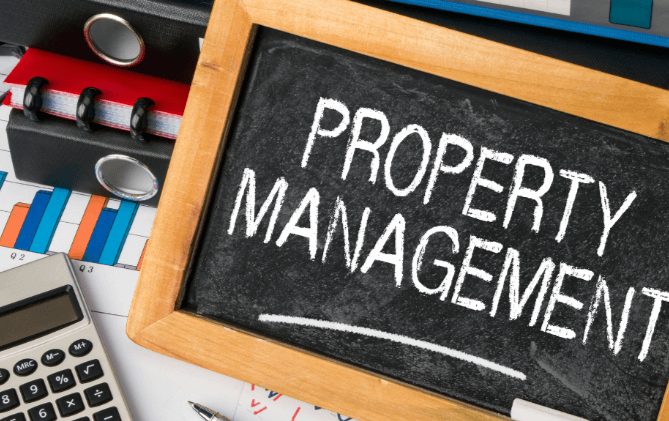Top Property Management Tips for Landlords

Introduction
Being a landlord is both rewarding and challenging. The ability to generate passive income through rental properties is a significant advantage, but it also comes with responsibilities that can be daunting if not managed properly. Effective property management is crucial to ensure that your investment remains profitable, your property retains its value, and your tenants are satisfied. This comprehensive guide explores the top property management tips for landlords, offering practical advice on everything from tenant screening to maintenance strategies.
Understanding the Basics of Property Management
Managing a property involves more than just collecting rent. It’s about overseeing every aspect of the rental property, from maintenance and tenant relations to financial management and legal compliance. Whether you’re a seasoned landlord or new to the game, understanding the fundamentals of property management is key to success. This includes knowing your legal obligations, staying organized, and maintaining a clear communication line with tenants.
Effective Tenant Screening Processes
One of the most critical aspects of property management is tenant selection. Proper screening helps you find reliable tenants who will pay rent on time and take care of your property. Start with a comprehensive application that includes personal information, employment history, and references. Conduct background checks, credit checks, and contact previous landlords to gather as much information as possible. The goal is to reduce the risk of late payments, property damage, and tenant turnover.
Setting Competitive Rental Rates
Determining the right rental price is essential for attracting tenants while ensuring your property generates sufficient income. Conduct a market analysis to understand the average rental rates in your area. Consider factors like location, property size, amenities, and the condition of your property when setting the price. Overpricing can deter potential tenants, while underpricing can lead to lost revenue.
Creating a Comprehensive Lease Agreement
A clear, comprehensive lease agreement is crucial for avoiding disputes and misunderstandings with tenants. The lease should cover all aspects of the tenancy, including rent amount and due date, security deposit details, maintenance responsibilities, and rules regarding property use. It’s advisable to consult with a legal expert to ensure your lease complies with local laws and adequately protects your interests.
Importance of Regular Property Inspections
Regular property inspections help you identify and address maintenance issues before they escalate. Conduct inspections at move-in, move-out, and periodically throughout the tenancy. This practice not only keeps your property in good condition but also helps in maintaining a positive relationship with your tenants. Document each inspection and address any issues promptly to avoid bigger problems down the line.
Maintaining the Property: Repairs and Upkeep
Maintaining your property is essential for preserving its value and keeping tenants satisfied. Establish a routine maintenance schedule that includes regular checks on plumbing repair services, electrical systems, HVAC units, and other critical areas. Promptly address repair requests from tenants to prevent minor issues from becoming major, costly repairs. Regular maintenance also helps in attracting quality tenants and retaining them long-term.
Managing Rent Collection Efficiently
Efficient rent collection is vital for maintaining cash flow and managing your property’s finances. Consider using an online rent collection system to simplify the process for both you and your tenants. Set clear rules regarding late payments and consistently enforce them. Providing multiple payment options, such as direct deposit or credit card payments, can also encourage timely payments.
Handling Tenant Complaints and Issues
Even with the best tenants, issues will inevitably arise. Whether it’s a maintenance request, noise complaint, or neighbor dispute, how you handle these situations can significantly impact your tenant retention rate. Respond to complaints promptly and professionally, showing that you take tenant concerns seriously. Effective communication and a willingness to resolve issues can foster a positive landlord-tenant relationship.
Navigating Legal Obligations and Compliance
As a landlord, you must adhere to various local, state, and federal regulations. These laws govern everything from security deposits to tenant rights and eviction procedures. Staying informed about your legal obligations is crucial to avoid costly legal disputes. Regularly review and update your lease agreements, and consider joining a landlord association to stay updated on changes in the law.
Strategies for Minimizing Tenant Turnover
High tenant turnover can be costly and time-consuming. To minimize turnover, focus on tenant satisfaction by maintaining the property, responding promptly to issues, and fostering a sense of community. Offering lease renewal incentives, such as a rent discount or property upgrades, can also encourage long-term tenancies.
Managing Property Finances
Effective financial management is critical to the success of your rental property. This includes budgeting for repairs, setting aside reserves for unexpected expenses, and tracking your income and expenses. Consider using property management software to streamline your financial processes and ensure accurate record-keeping. Proper financial management helps in maximizing your profits and maintaining the financial health of your property.
Optimizing Your Property’s Value
Investing in property improvements can significantly enhance its value and attract higher-paying tenants. Focus on upgrades that offer a good return on investment, such as kitchen and bathroom renovations, energy-efficient appliances, and landscaping. Regularly assess the condition of your property and make improvements as needed to keep it competitive in the rental market.
Leveraging Technology for Property Management
In today’s digital age, leveraging technology can make property management more efficient. Property management software can help you automate tasks like rent collection, maintenance scheduling, and tenant communication. Additionally, using smart home technology, such as keyless entry or smart thermostats, can make your property more attractive to tech-savvy tenants.
Understanding Insurance and Risk Management
Insurance is a critical aspect of protecting your investment. Landlord insurance policies typically cover property damage, liability, and loss of rental income. Understanding the coverage and exclusions of your policy is essential. Additionally, consider implementing a risk management plan that includes regular property inspections, prompt maintenance, and ensuring that your tenants have renters insurance.
Marketing Your Rental Property Effectively
Effective marketing is key to attracting quality tenants. Use multiple platforms to advertise your property, including online listing sites, social media, and local classifieds. High-quality photos, detailed property descriptions, and highlighting unique features can make your property stand out. Additionally, consider offering virtual tours to reach a broader audience.
Handling Evictions Properly
While eviction should be a last resort, it’s sometimes necessary. Understanding the legal eviction process is crucial to avoid potential legal issues. Follow your state’s laws carefully, providing proper notice and documentation. Always strive to resolve issues amicably before resorting to eviction, but be prepared to take action if necessary to protect your investment.
Building and Maintaining Positive Tenant Relationships
Building positive relationships with your tenants can lead to long-term tenancies and fewer conflicts. Be approachable, responsive, and fair in your dealings. Regularly check in with your tenants and address their concerns promptly. A good landlord-tenant relationship can also lead to referrals, helping you find new tenants more easily when needed.
Managing Multiple Properties Efficiently
If you manage multiple properties, organization and efficiency are key. Consider using property management software to keep track of tasks, tenant information, and finances across your portfolio. Delegating tasks to trusted contractors or hiring a property manager can also help you manage your properties more effectively. The goal is to maintain the same level of care and attention to each property, regardless of the number of units you oversee.
Preparing for the End of Tenancy
The end of a tenancy requires careful planning and execution. Begin by reviewing the lease agreement and reminding the tenant of their obligations, such as cleaning and returning keys. Conduct a final inspection and compare it to the move-in report to determine any necessary deductions from the security deposit. Clear communication during this process can help avoid disputes and ensure a smooth transition for both parties.
Expanding Your Rental Property Portfolio
For landlords looking to grow their rental business, expanding your portfolio is a natural next step. Research potential investment opportunities, focusing on properties in desirable locations with strong rental demand. Consider diversifying your investments by including different types of properties, such as single-family homes, multifamily units, or commercial spaces. Proper planning and due diligence are essential to successful portfolio expansion.
FAQs
How often should I inspect my rental property? Regular inspections are recommended at least once a year, in addition to move-in and move-out inspections. Quarterly inspections can be beneficial for identifying issues early.
What should I include in a lease agreement? A comprehensive lease agreement should include rent amount and due date, security deposit terms, maintenance responsibilities, and rules regarding property use, among other things.
How can I reduce tenant turnover? Maintaining the property, responding to tenant concerns promptly, and offering lease renewal incentives can help reduce tenant turnover.
What are the benefits of using property management software? Property management software can streamline rent collection, maintenance scheduling, and tenant communication, making property management more efficient.
How do I handle a tenant who frequently pays rent late? Consistently enforce late fees as outlined in the lease agreement and consider offering multiple payment options to encourage timely payments.
When should I consider hiring a property manager? If you have multiple properties or limited time, hiring a property manager can help you maintain your investment effectively while reducing your workload.
Conclusion
Effective property management is essential for maximizing the profitability and longevity of your rental property. By implementing these top property management tips for landlords, you can improve tenant satisfaction, maintain the value of your property, and ensure a steady income stream. From tenant screening and setting competitive rental rates to handling maintenance and legal obligations, each aspect of property management plays a crucial role in your success as a landlord. With careful planning and the right strategies, you can navigate the challenges of property management and achieve long-term success in the rental market.





